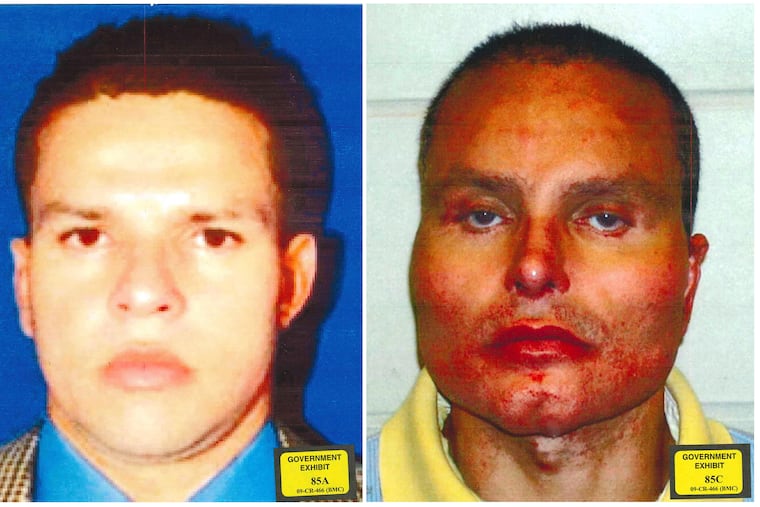‘El Chapo’ consort opens up about cartels' ruthlessness
A key government witness at the U.S. trial of the Mexican drug lord known as "El Chapo" has testified about the cold-blooded killings committed to further his own narcotics empire

NEW YORK (AP) — A key government witness at the U.S. trial of notorious Mexican drug lord Joaquin "El Chapo" Guzman spelled out the bloodshed and other cold realities of international drug-trafficking Tuesday without expressing regret or making excuses.
Former Colombian kingpin Juan Carlos Ramirez Abadia was asked on cross-examination by a lawyer for Guzman whether he ordered scores of murders, whether he kept a ledger that showed how much hit men were paid, and whether he repeatedly lied to and bribed Colombian authorities with tens of millions of dollars to stay in business.
Among the matter-of-fact answers he gave through a Spanish interpreter: "Totally correct." ''Obviously." ''At the time, of course I lied." ''That's how it was, sir."
The testimony by Ramirez Abadia, known for radically altering his face through plastic surgery, came during the third week of the trial in federal court in Brooklyn. Guzman's lawyers say the witness is part of a crew of low-life cooperators who are framing their client to get breaks in their own drug-trafficking cases.
Ramirez Abadia testified how his Norte del Valle cartel used a fleet of planes and boats to ship tons of cocaine to Mexico, where the Sinaloa cartel was tasked with smuggling it into the United States under the direction of Guzman and others. Prosecutors say the massive amounts of drugs and cash flowing back and forth across the U.S. border in the 1990s and early 2000s were documented in ledgers that looked like mundane business records.
Seeking to drive home the human toll of the violent drug trade, defense attorney William Purpura got Ramirez Adadia to confirm the ledgers also showed the expenses for murders for hire — $45,000 to have three people killed and $338,776 in another instance because, he said, so many hit men were involved.
The dead included a top lieutenant rubbed out in prison after his arrest merely because, Ramirez Adadia suggested, "he knew a lot about my organization." Another time, the witness said he lured a mutinous cartel member to a meeting where the victim and his entourage were slaughtered in a gangland-style ambush, their bodies then loaded in pickup trucks for disposal.
He also acknowledged lower-level operatives in the New York City area were knocked off under suspicion of stealing or snitching, including a woman in Fort Lee, New Jersey. Her husband and son also perished in the process, according to the defense.
Once he learned he had been indicted in the U.S., Ramirez Adadia fled to Brazil, where he made his face look like a theatrical mask with implants and injections. He also used disguises for photos on fake identification cards with various aliases in a bid to hide his identity, which ultimately failed.
On Tuesday, he was asked about the meaning of "Chupeta," the nickname cited in the U.S. indictment filed against him.
“Un dulce,” he said. “Candy.”